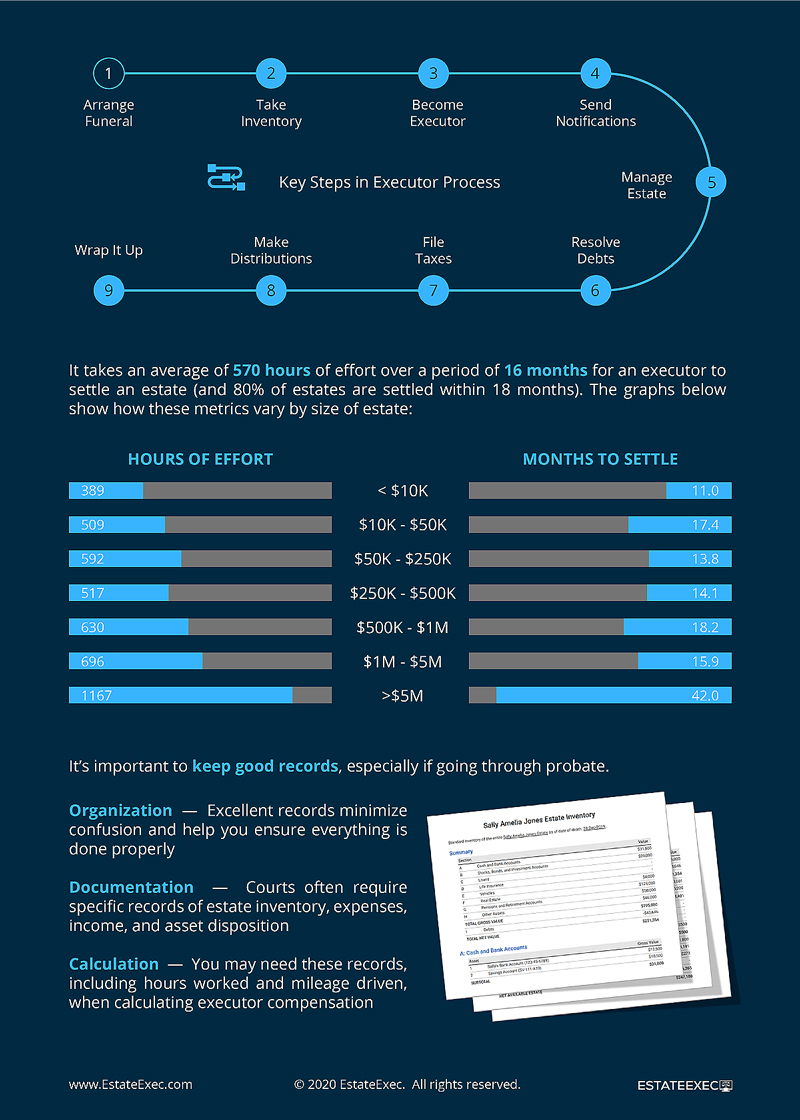Settling a loved one’s estate can be like taking on a second job for several months, said Dan Stickel, founder and CEO of EstateExec, an online estate planning and settlement tool.
It takes an average of 570 hours to settle an estate. That’s the equivalent of more than 14 weeks of full-time work, Stickel said, and, the more valuable the estate, the longer it can take to settle.
Stickel, formerly a Silicon Valley technology executive, founded EstateExec in 2018 after acting as executor for both his father’s and his mother’s estates. The firm served consumers and advisors in the U.S. until earlier this month when it expanded to Canada.
 “Considering that most executors have full-time jobs and are grieving the loss of a loved one, completing more than 570 additional hours of work can be excruciating even for the most organized and intelligent person, much less someone grappling with loss,” Stickel said. “We wanted to ease that burden for estate executors.”
“Considering that most executors have full-time jobs and are grieving the loss of a loved one, completing more than 570 additional hours of work can be excruciating even for the most organized and intelligent person, much less someone grappling with loss,” Stickel said. “We wanted to ease that burden for estate executors.”
“Most people have no idea how much work is involved in settling an estate. Even if you hire a lawyer to help, the lawyer is just going to give you a lot of tasks to do. The executor still has to do the work,” he said.
The situation gets even more complicated if the heirs are arguing over some of the assets or are distrustful of each other. Stickel said he knew one family that got stuck on trying to decide who got the Green Bay Packers season tickets. Another ended up with members not speaking to each other over a pillow and a ring that had sentimental value. EstateExec cannot solve those kinds of problems, but knowing what to expect and keeping communications open can help, he said.
EstateExec provides an outline to keep executors on track. Nine steps need to be accomplished to complete the work, including taking an inventory of assets, paying off debts, filing taxes and making distributions to heirs. Information can be organized through EstateExec and shared with the necessary people, including lawyers, and heirs. The software also provides structure so no steps are omitted, he said.
“Being an executor is not an exact science. Different states have different rules, some of which might even conflict with each other, and some that are vague and open to interpretation,” Stickel said. “Heirs might get anxious if settlements take time, but EstateExec can give everyone an idea of how much time action might require and how much an executor can reasonably be expected to be paid.”
EstateExec costs a one-time payment of $99 and the service is then available for five years. Financial advisors can use the service to help clients who are acting as executors, he said.
Estates vary so much in details and assets that it is difficult to know how much time is saved by using the EstateExec organizing features, but “if everyone knows what to expect and communications are maintained” a successful outcome, where family members are still speaking to each other at the end, is easier to achieve, Stickel said. Graphics available at https://www.estateexec.com/Docs/General_Statistics
https://www.estateexec.com/Docs/General_Statistics